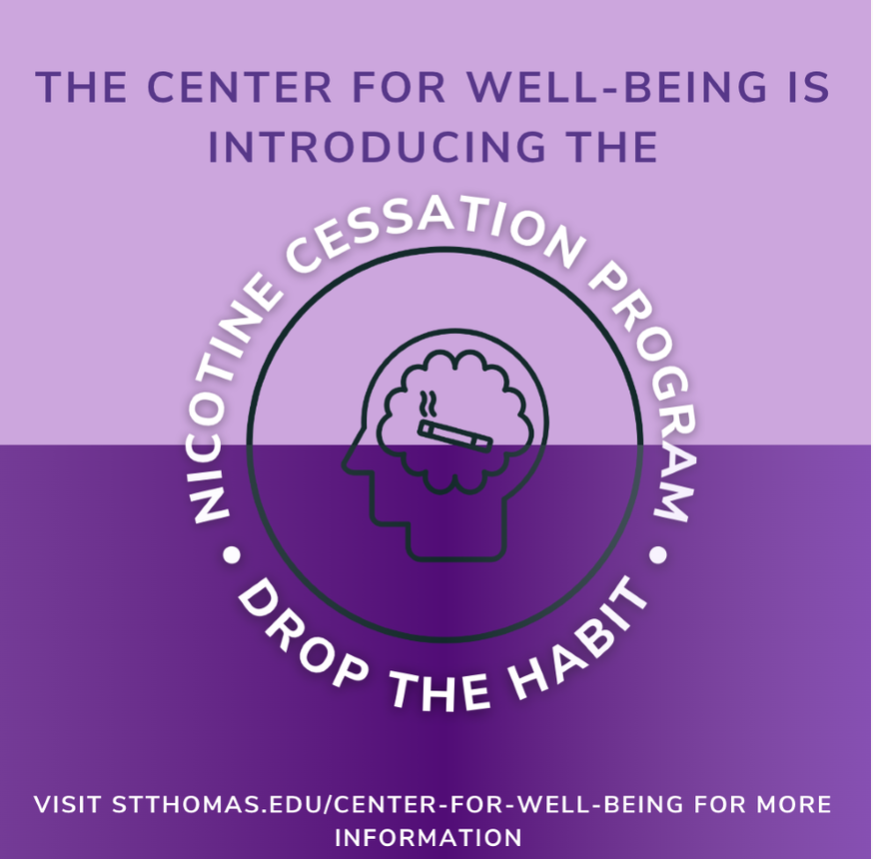
The Center for Well-Being has added Project QUIT, a new nicotine cessation program to aid students and faculty who are trying to quit.
The Center for Well-Being launched the program on Nov. 17 to coincide with the American Cancer Society’s Great American Smokeout. The program offers six weeks of free nicotine replacement products and wellness coaching to help sustain the wish of quitting.
“I want people to join because I have seen devastating physical and mental health effects of cigarettes and vaping on young, otherwise healthy people,” nurse practitioner Jessica Lemker said.
Participants will meet with Lemker, who will provide nicotine replacement therapy. Holly Walsh, resilience and wellness coach program manager, also helps guide participants to quit through coaching sessions.
The program is molded to fit each participant to ensure the six weeks will work for them.
“My role is to support students in being able to be successful at quitting using tobacco,” Walsh said. “I meet with students six times typically, and we try to do it once a week if possible just for support and accountability and just to help students if they’re hitting any challenges along the way we can brainstorm and come up with ways to cope with those things.”
During meetings, Lemker discusses the physical impacts of nicotine to identify any current health concerns that could be caused by nicotine and provides nicotine replacement therapy, like nicotine gum and patches.
“The goal of nicotine replacement therapy is to help reduce the impact of cravings by providing nicotine without the added tobacco or other harmful chemicals from vaping or e-cigarettes,” Lemker said. “It works by replacing the nicotine in a less harmful format and then reducing the amount that is delivered over time, essentially weaning off the chemical to help a person quit successfully.”
The Center for Well-Being hopes to guide students and faculty toward a healthier future.
“Be kind and compassionate to yourself, it’s not easy,” Walsh said.
Maeve Walls can be reached at wall49822@stthomas.edu.



